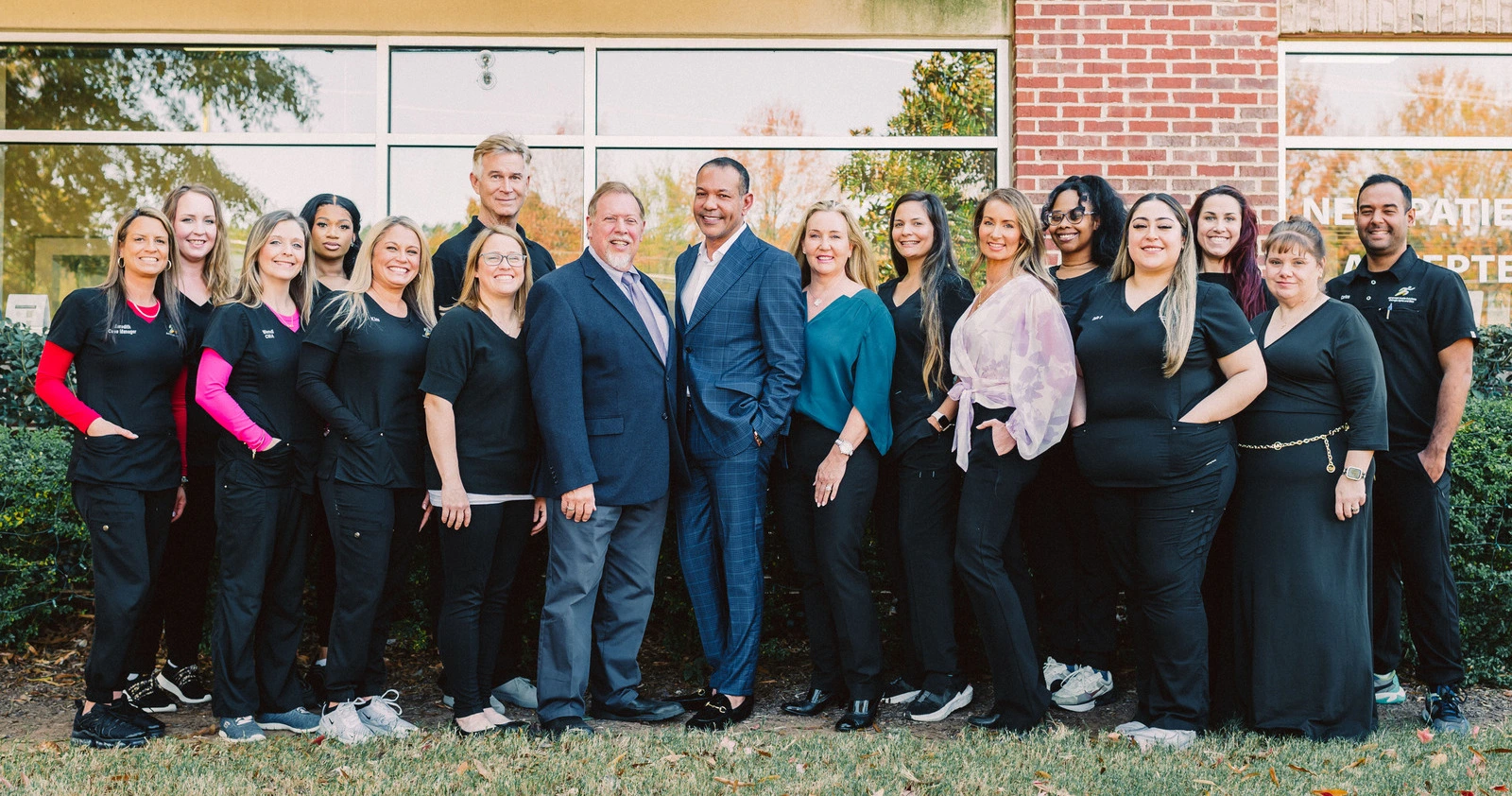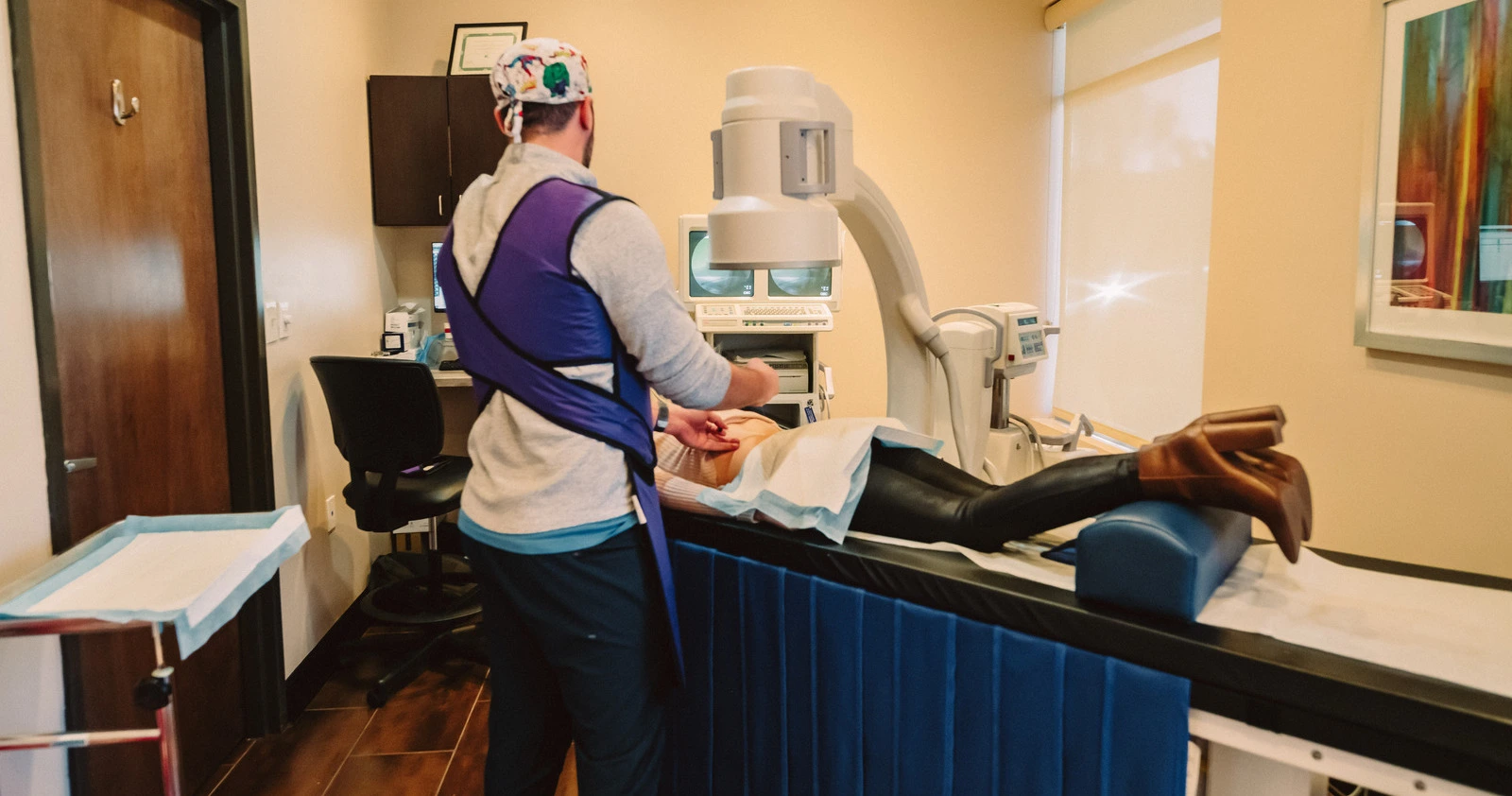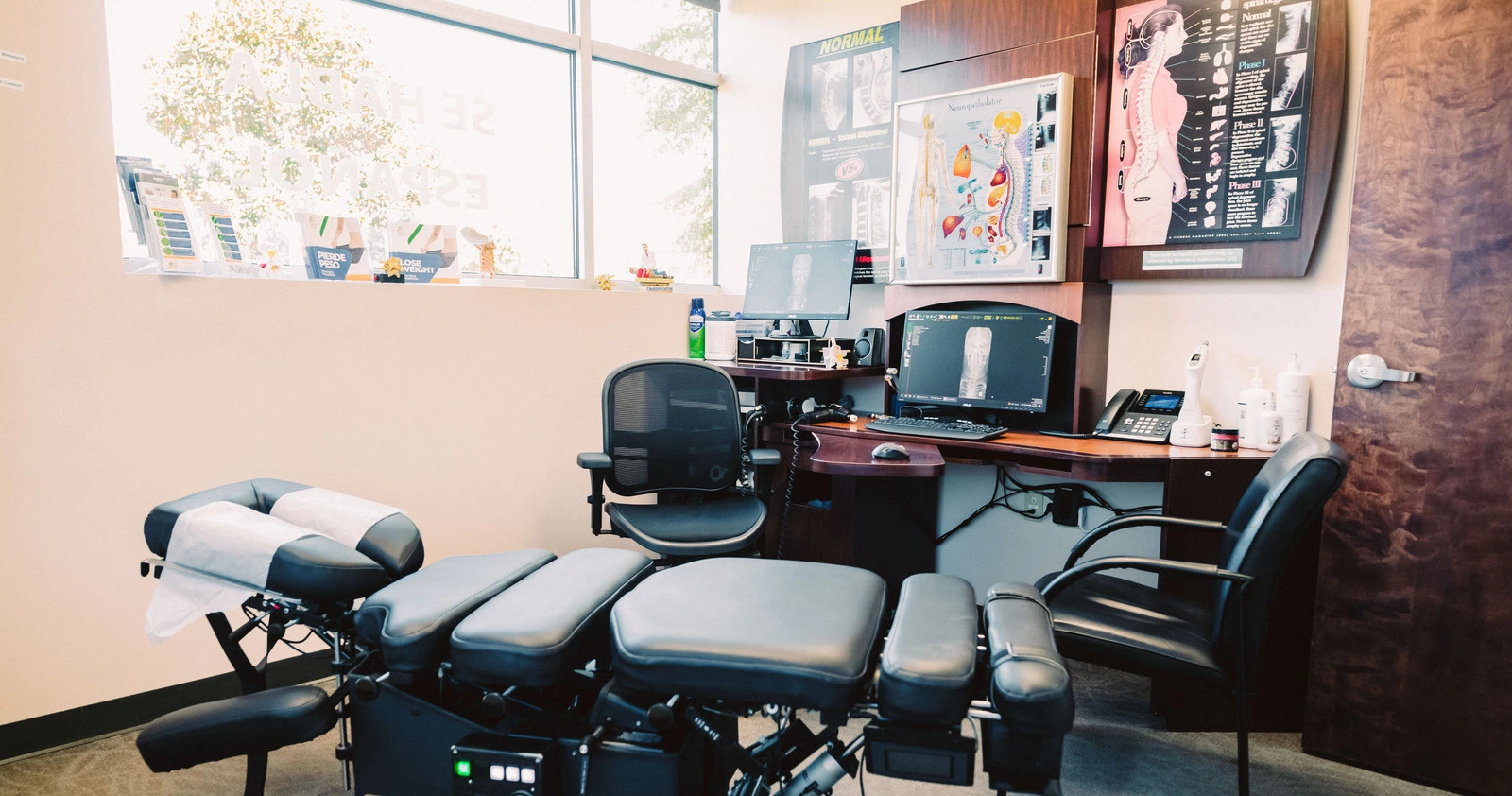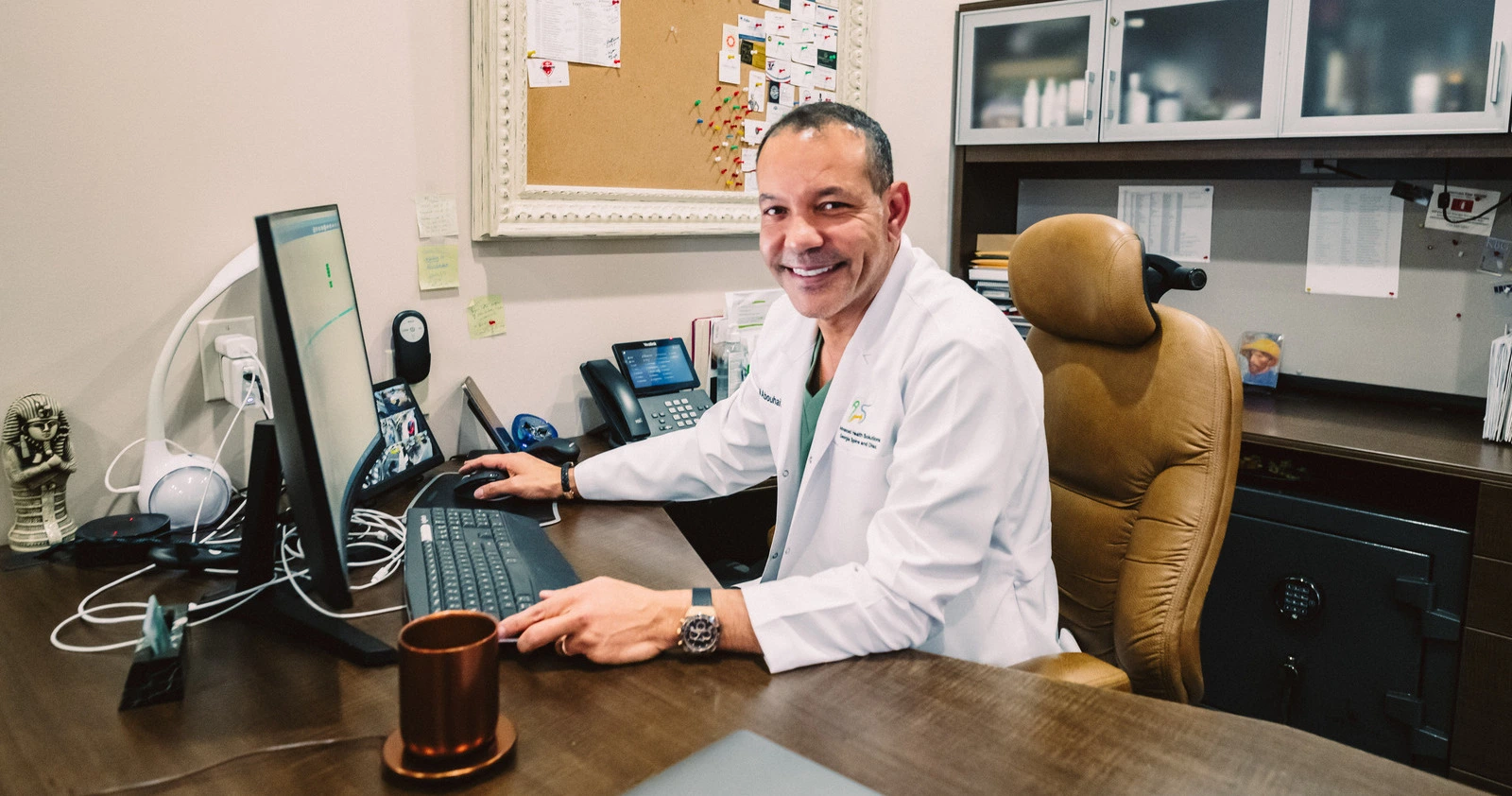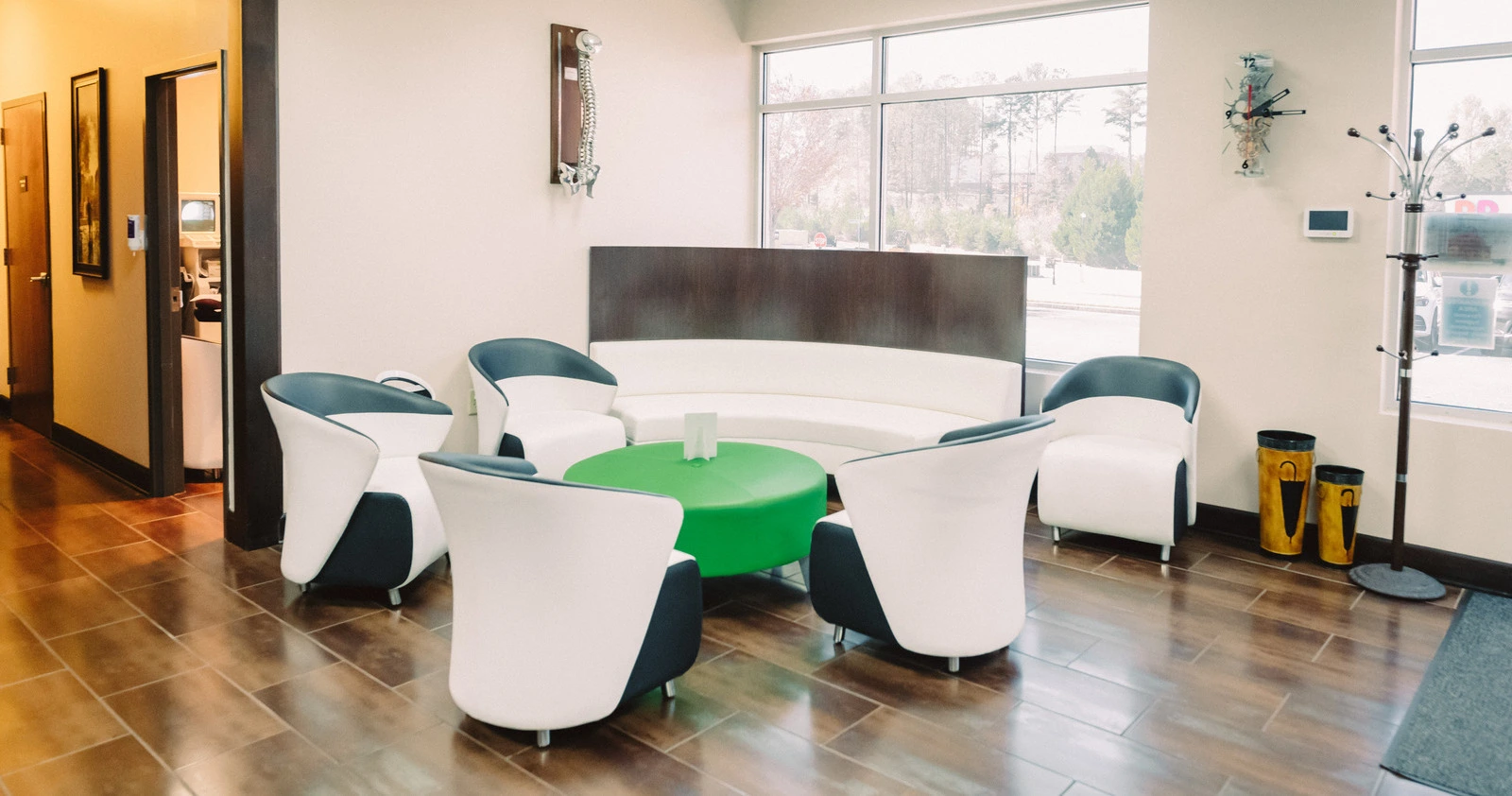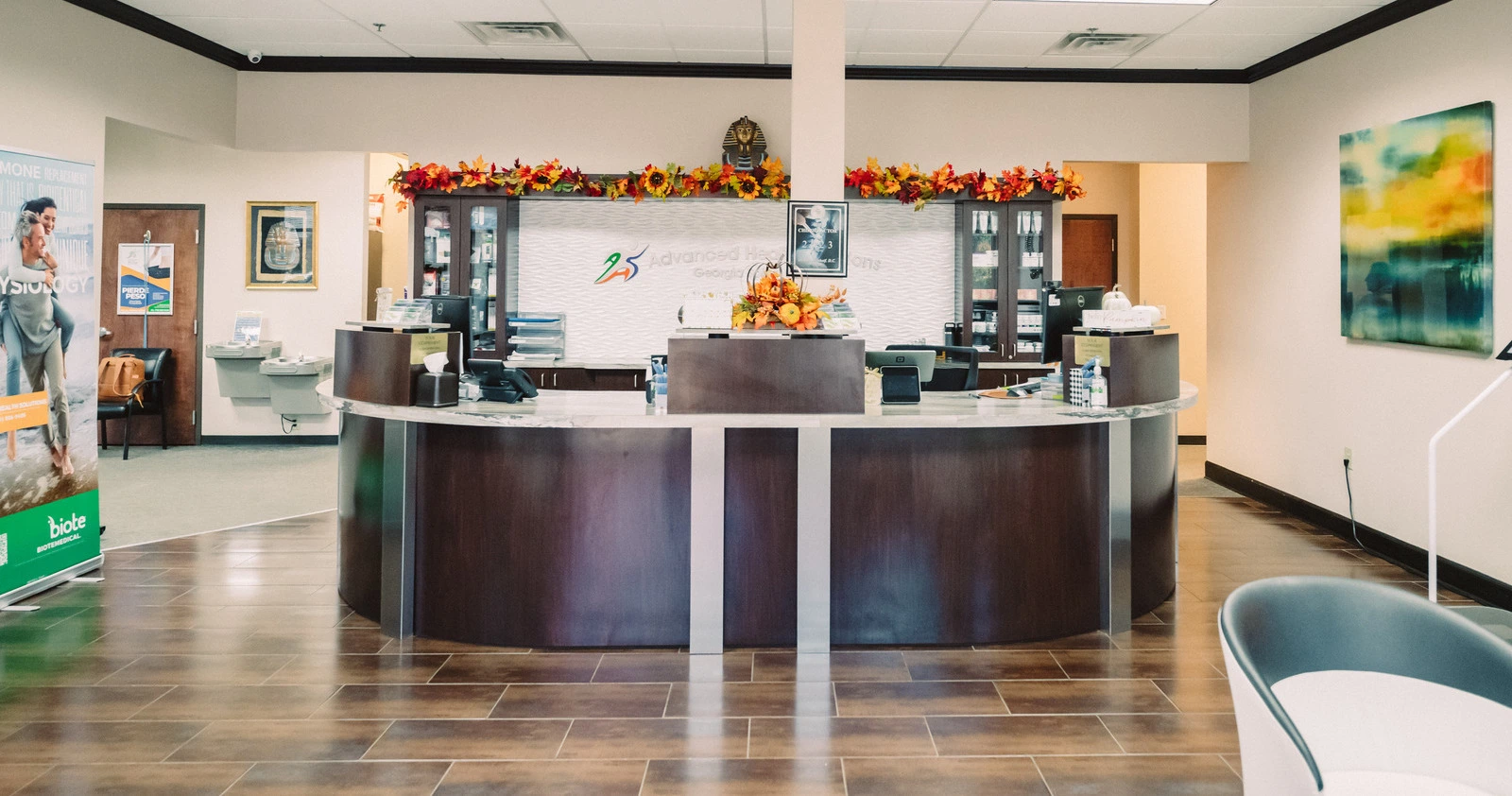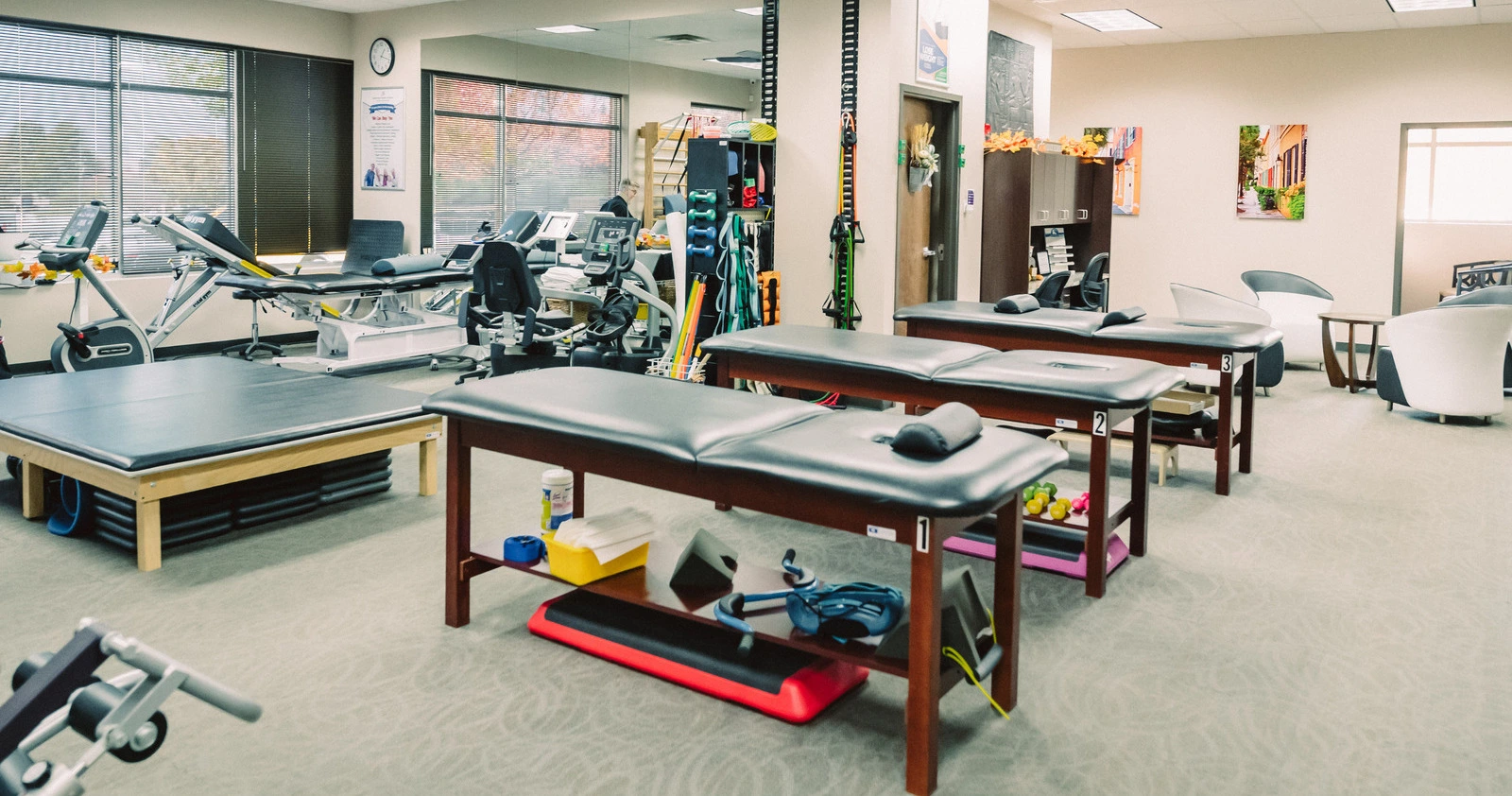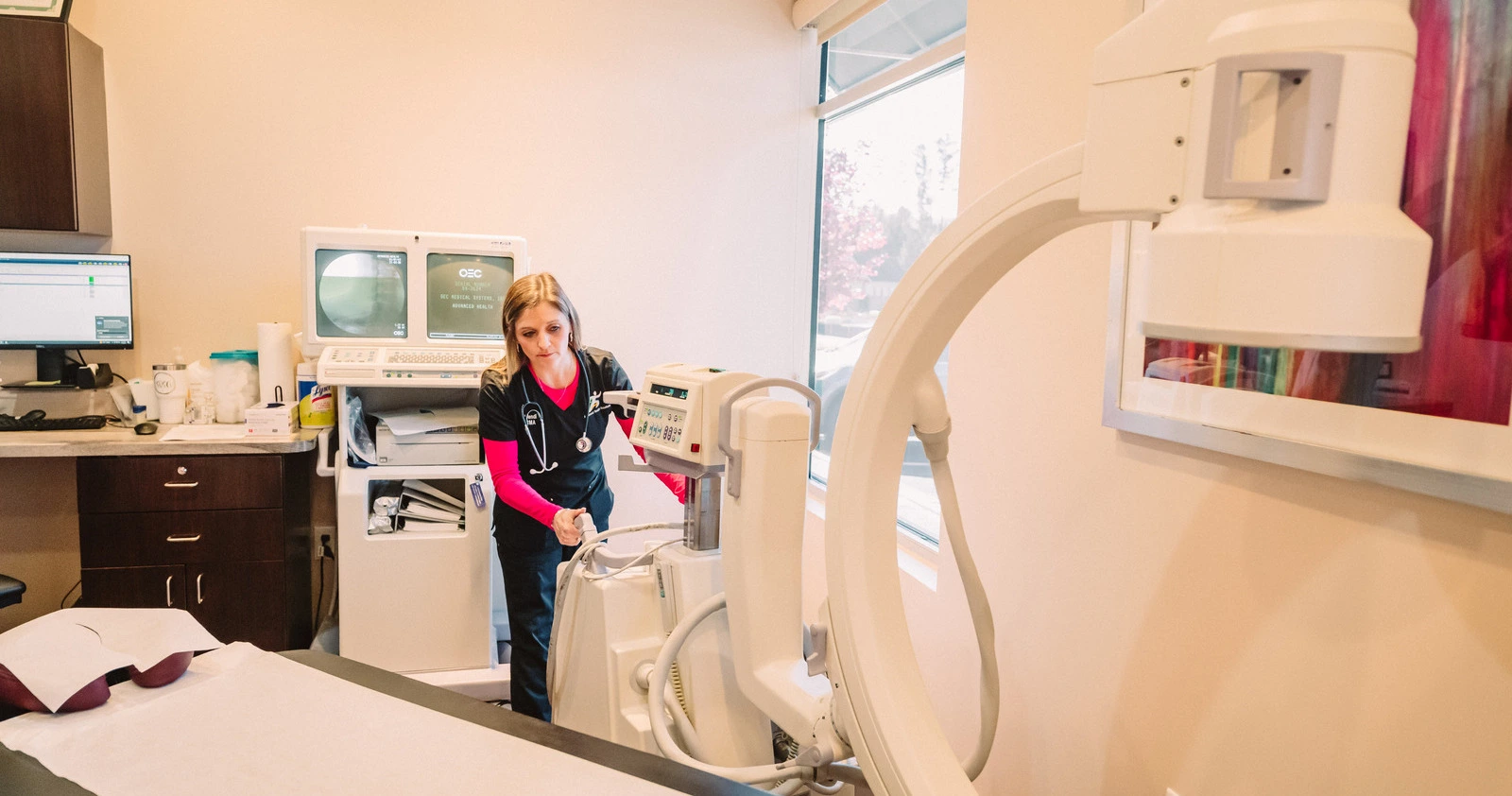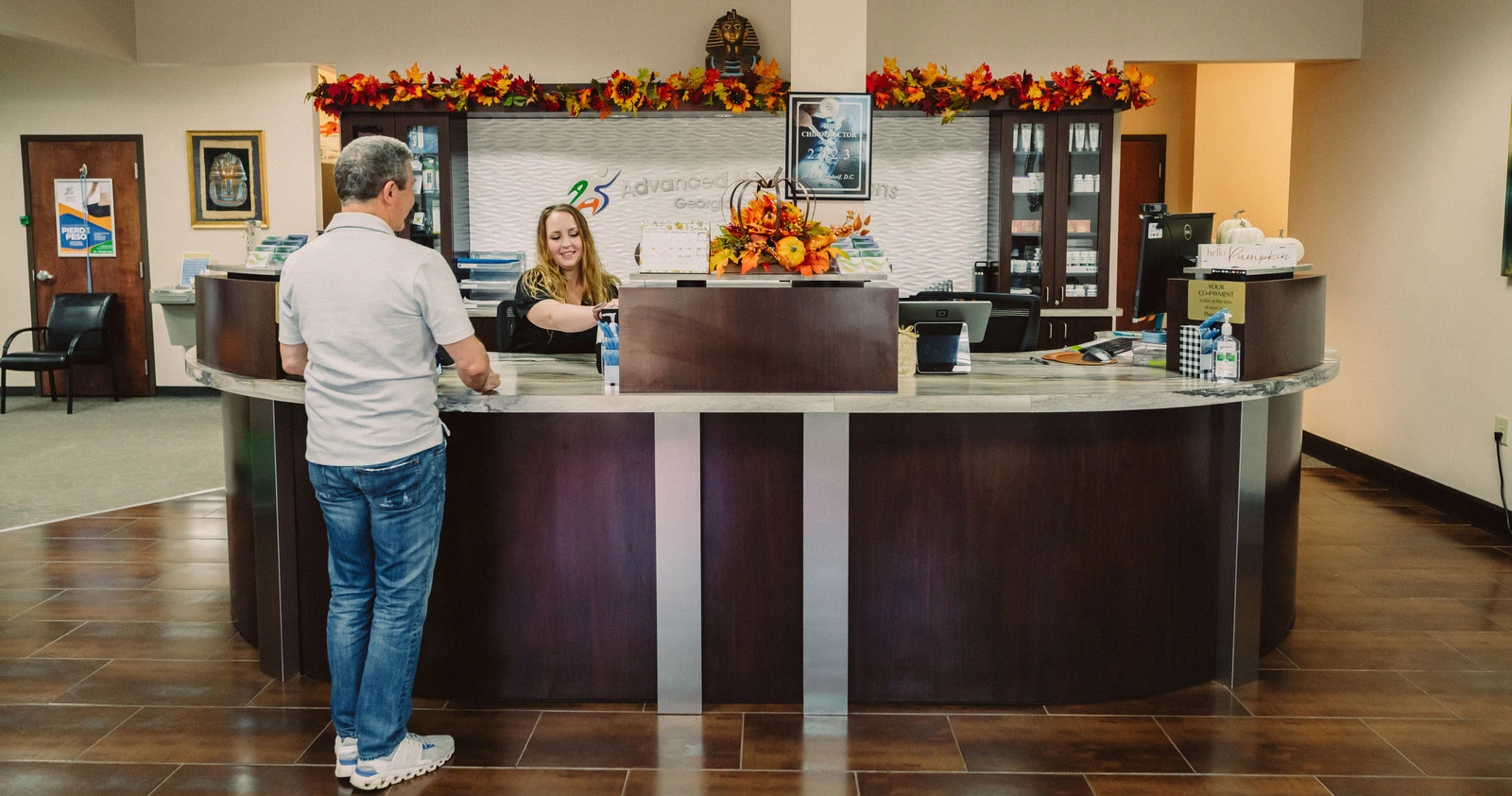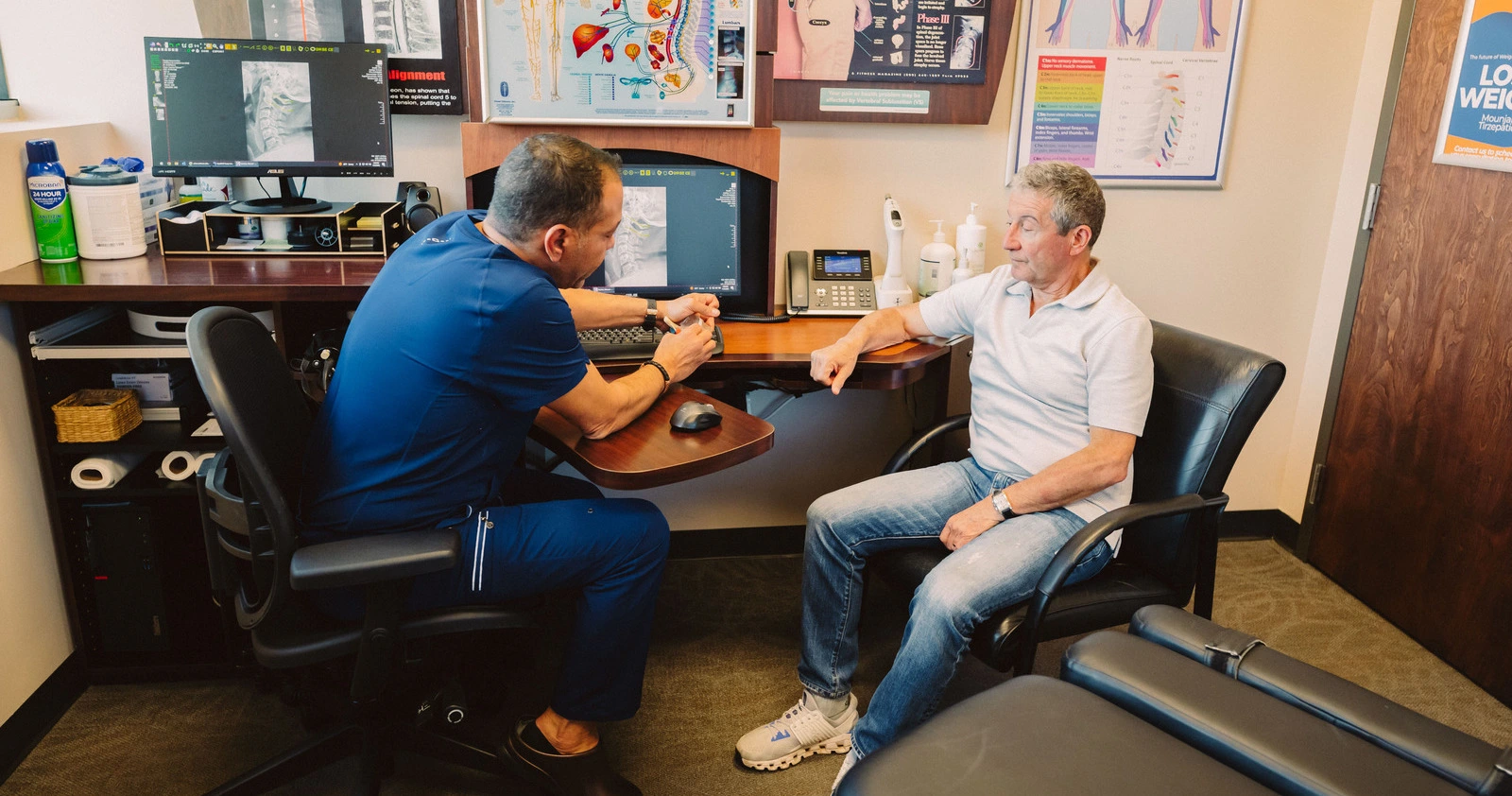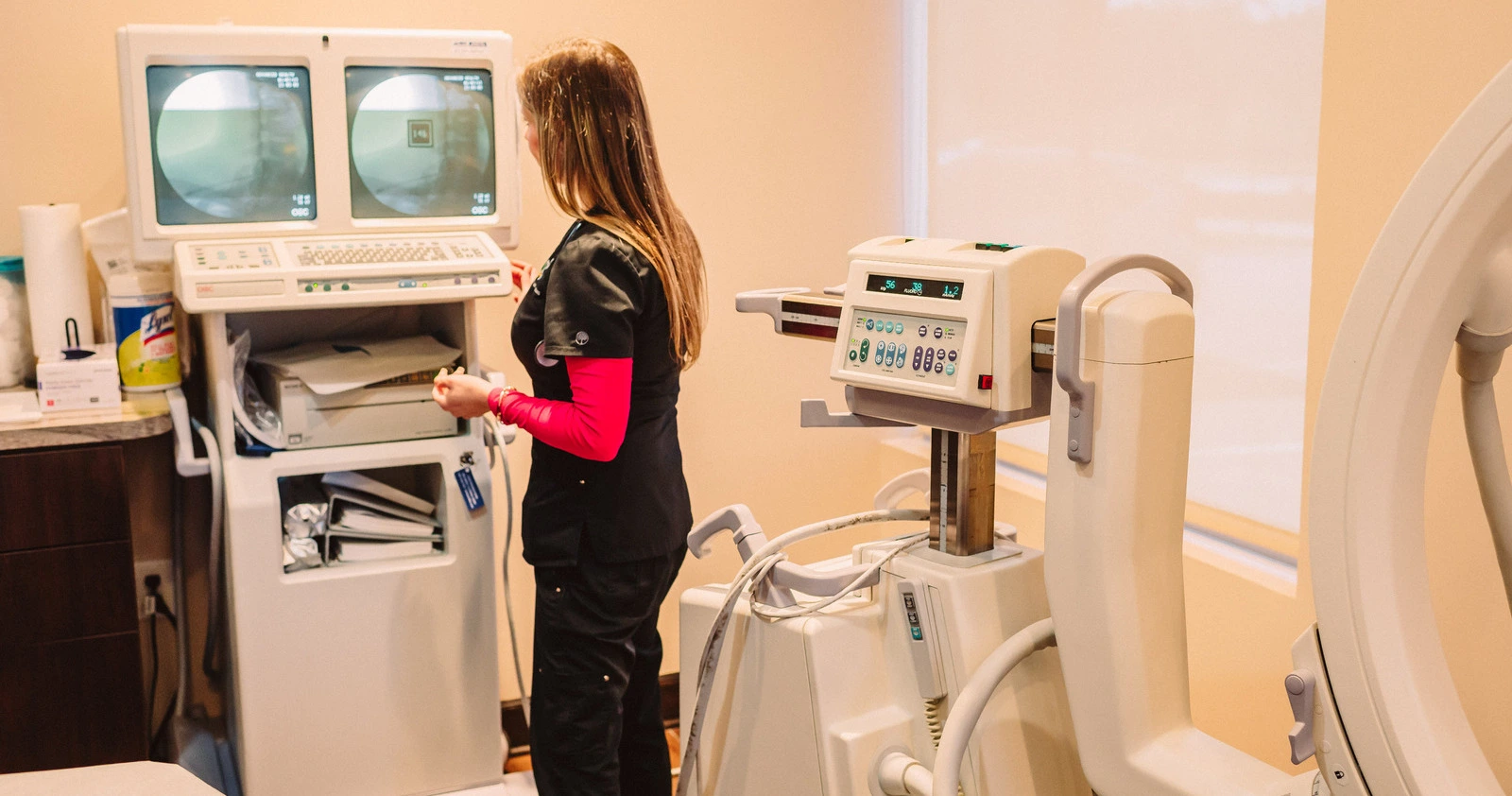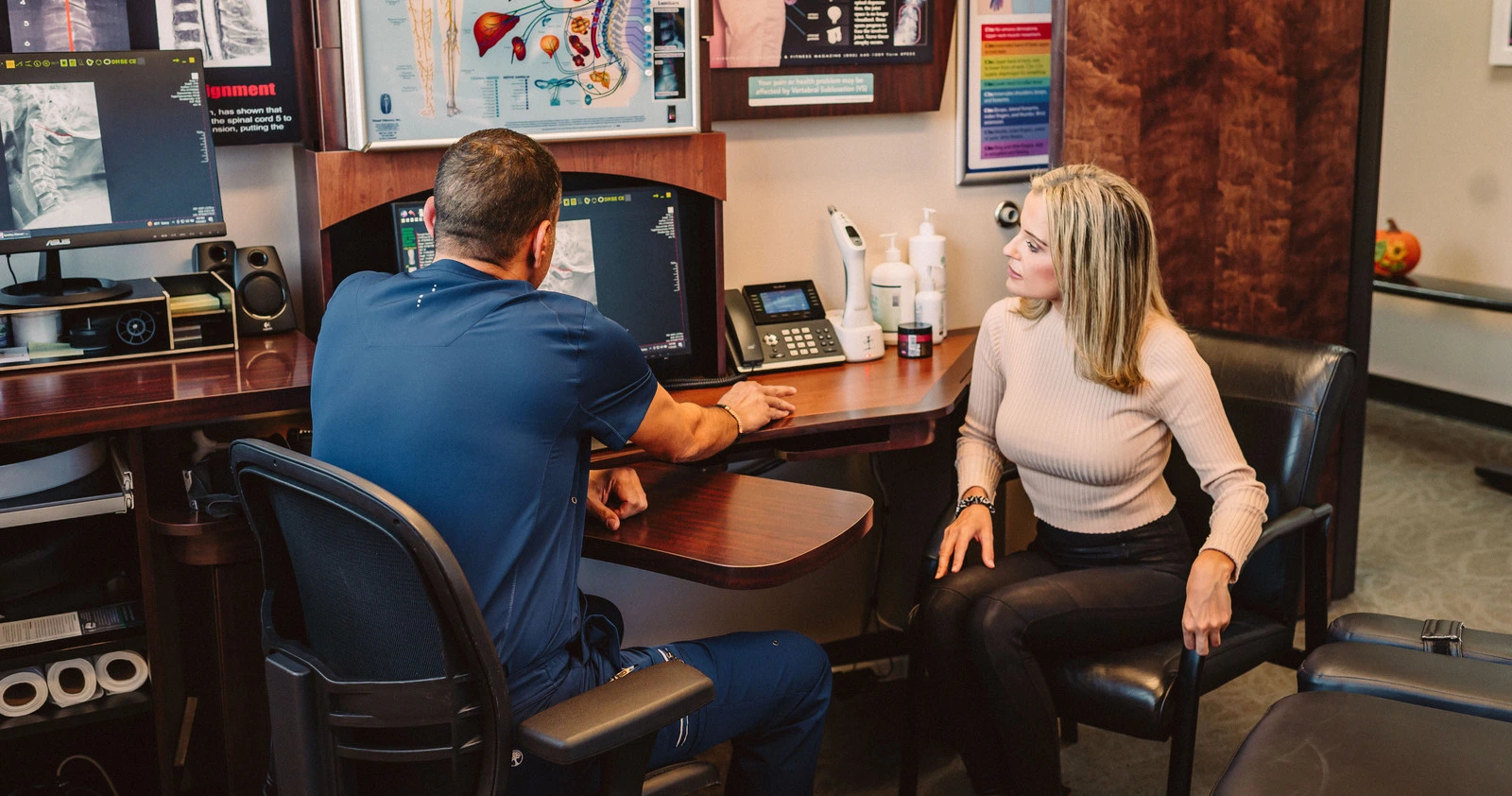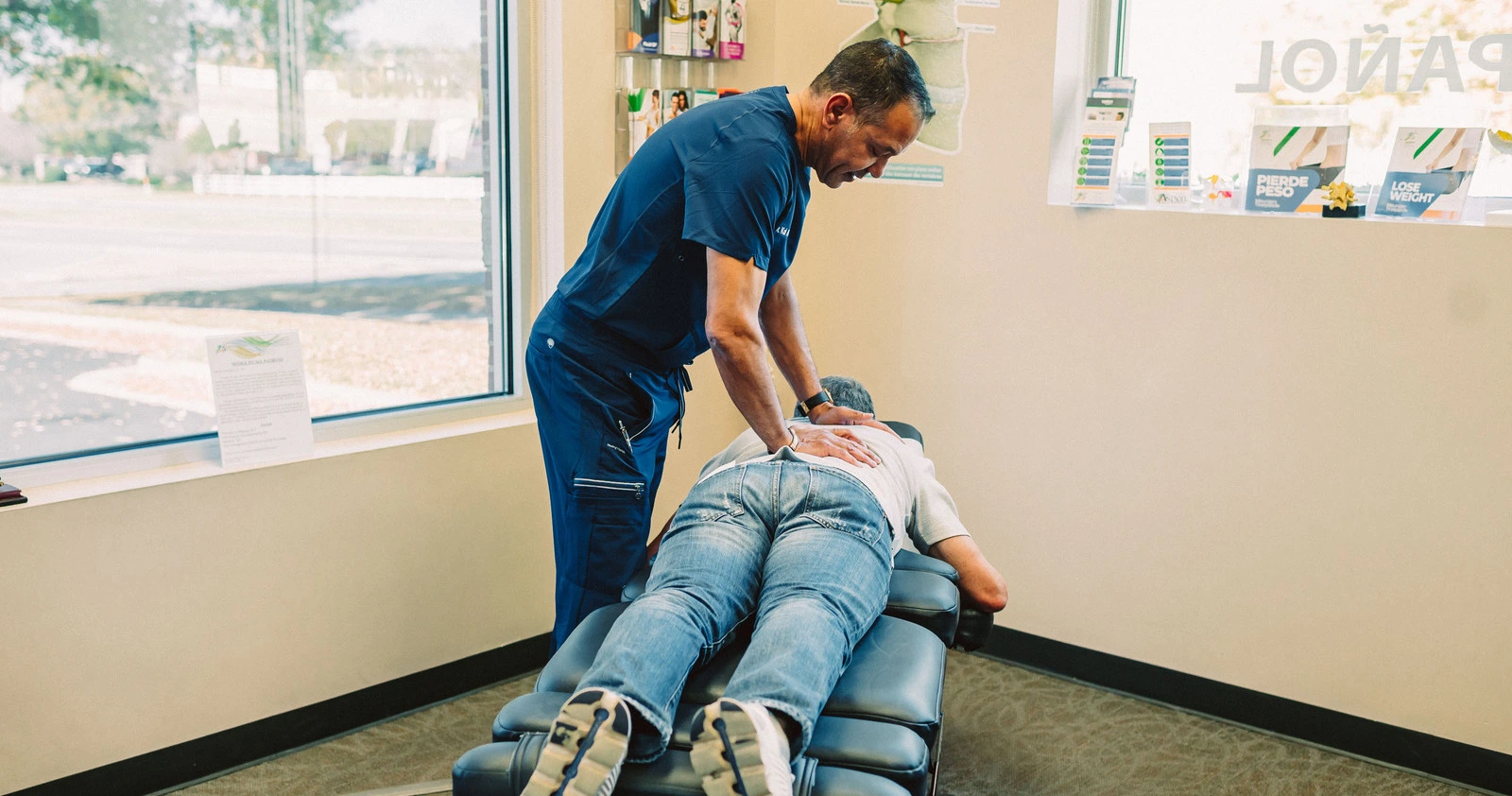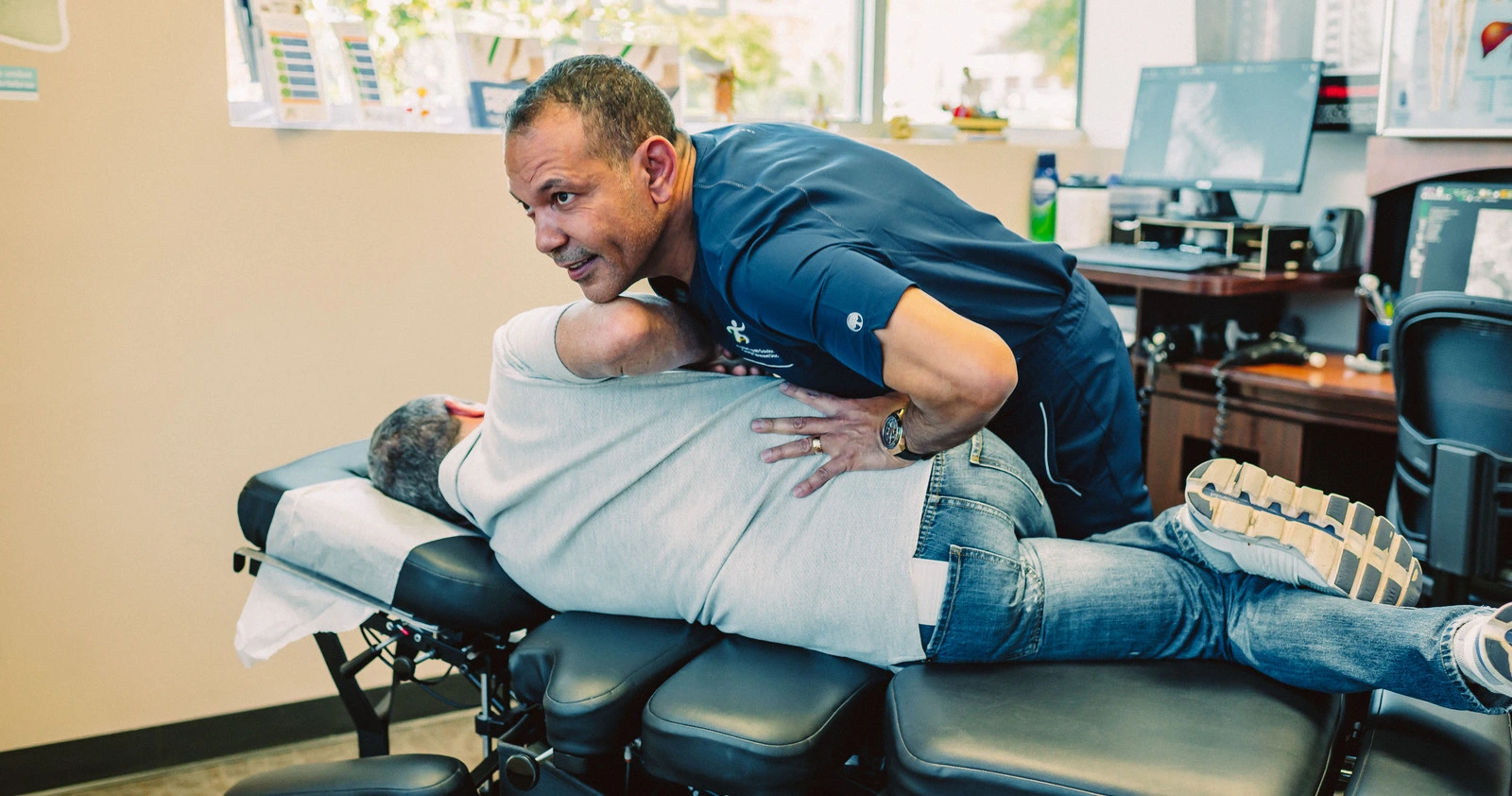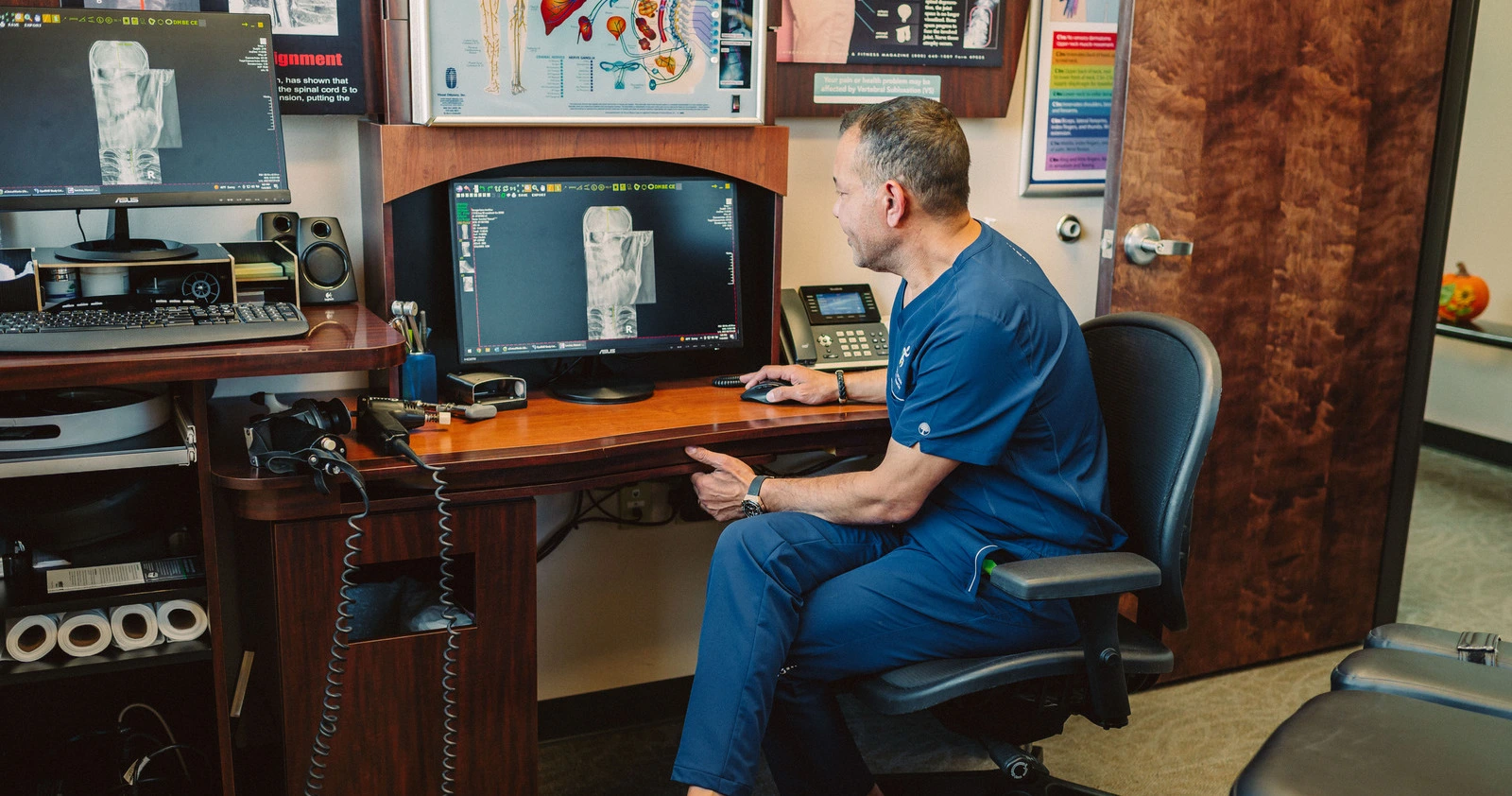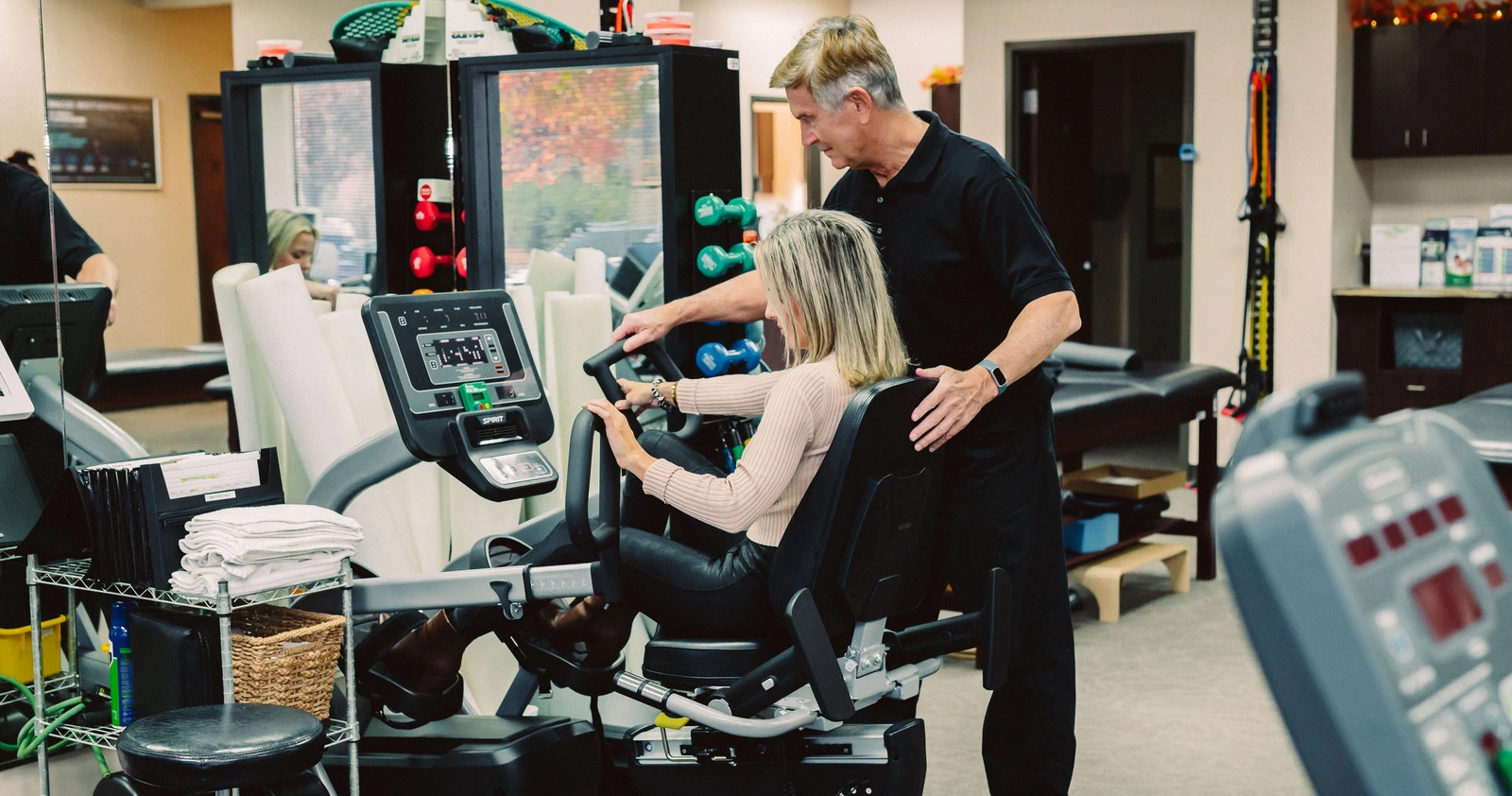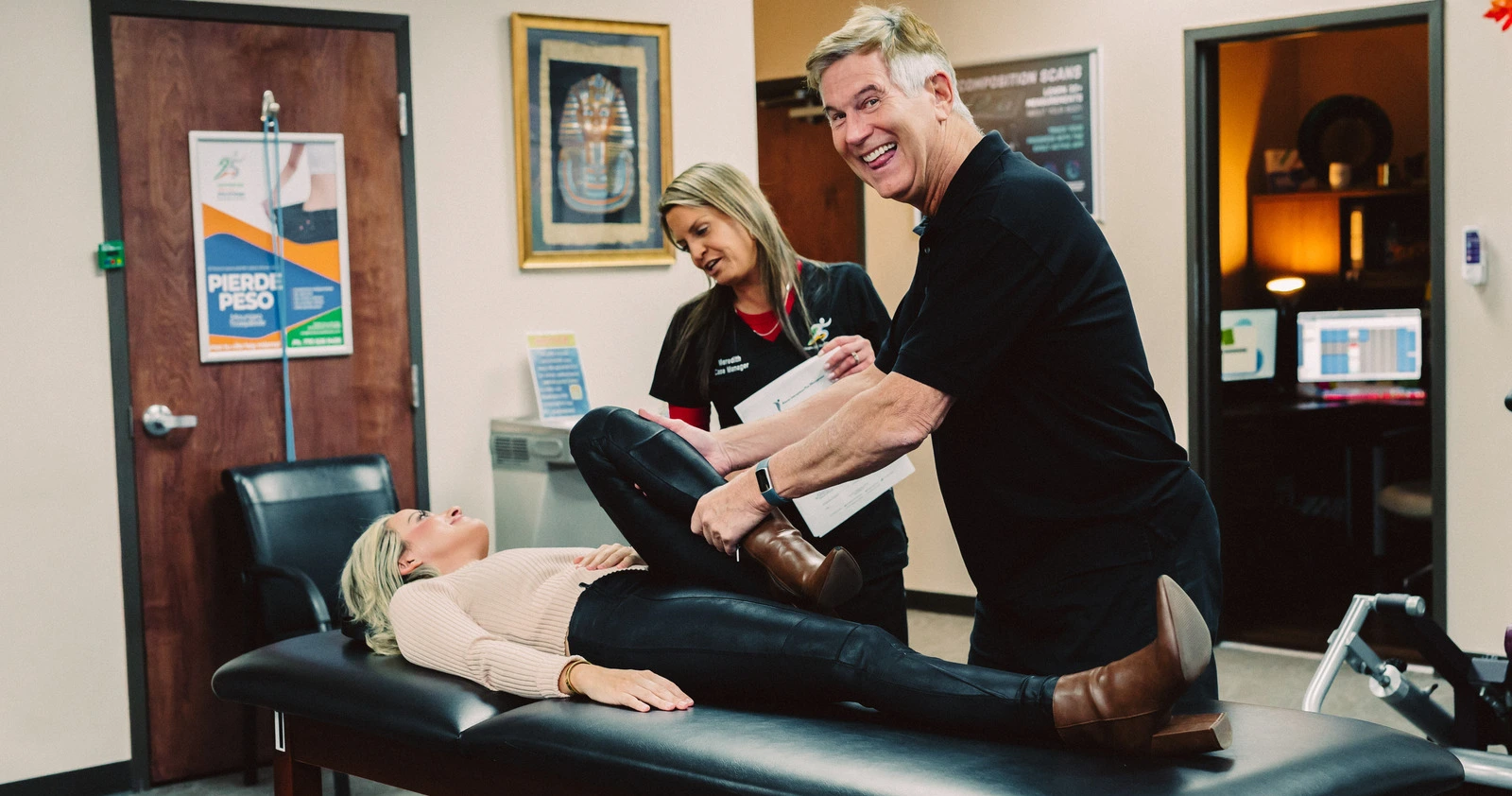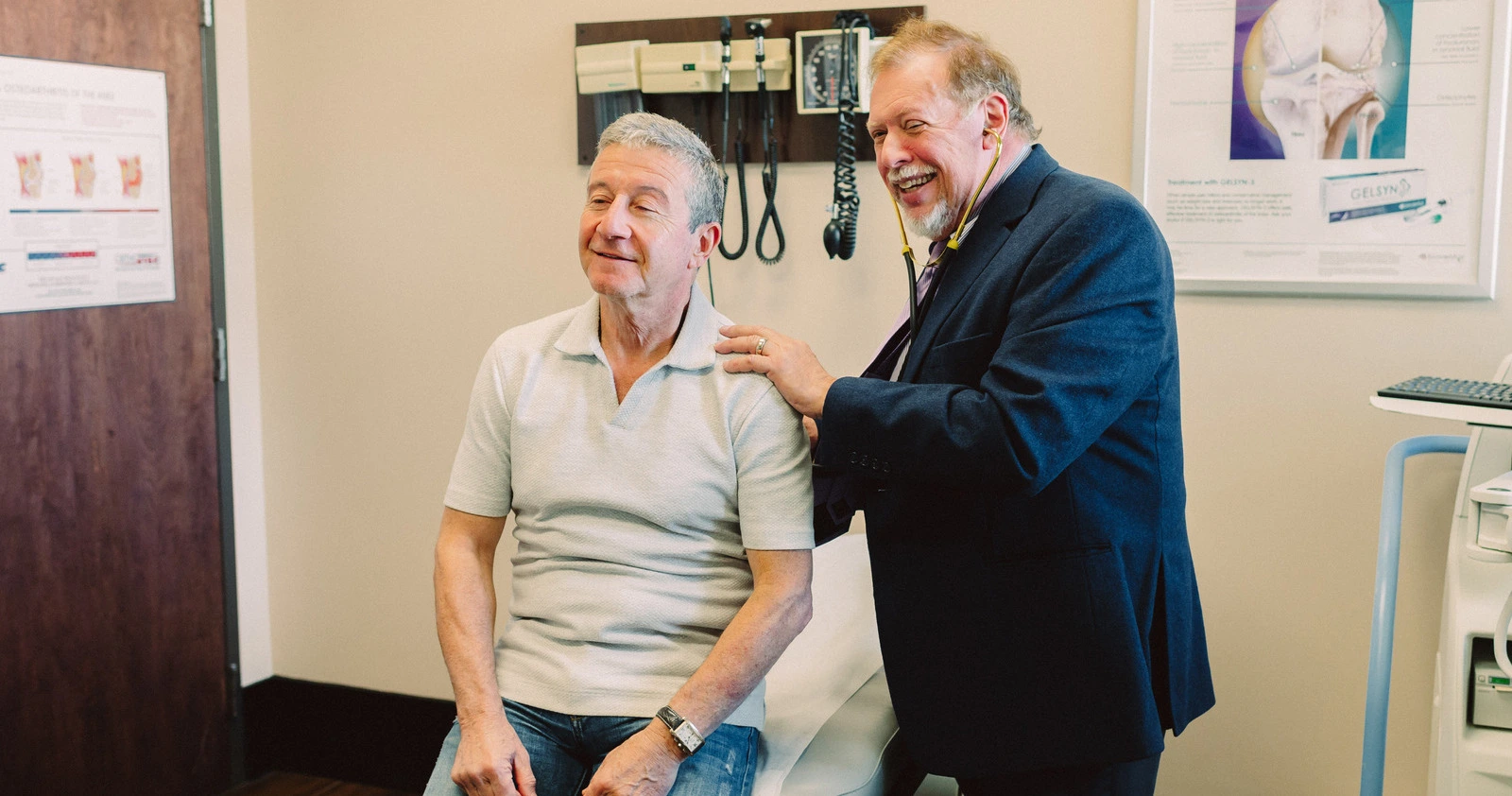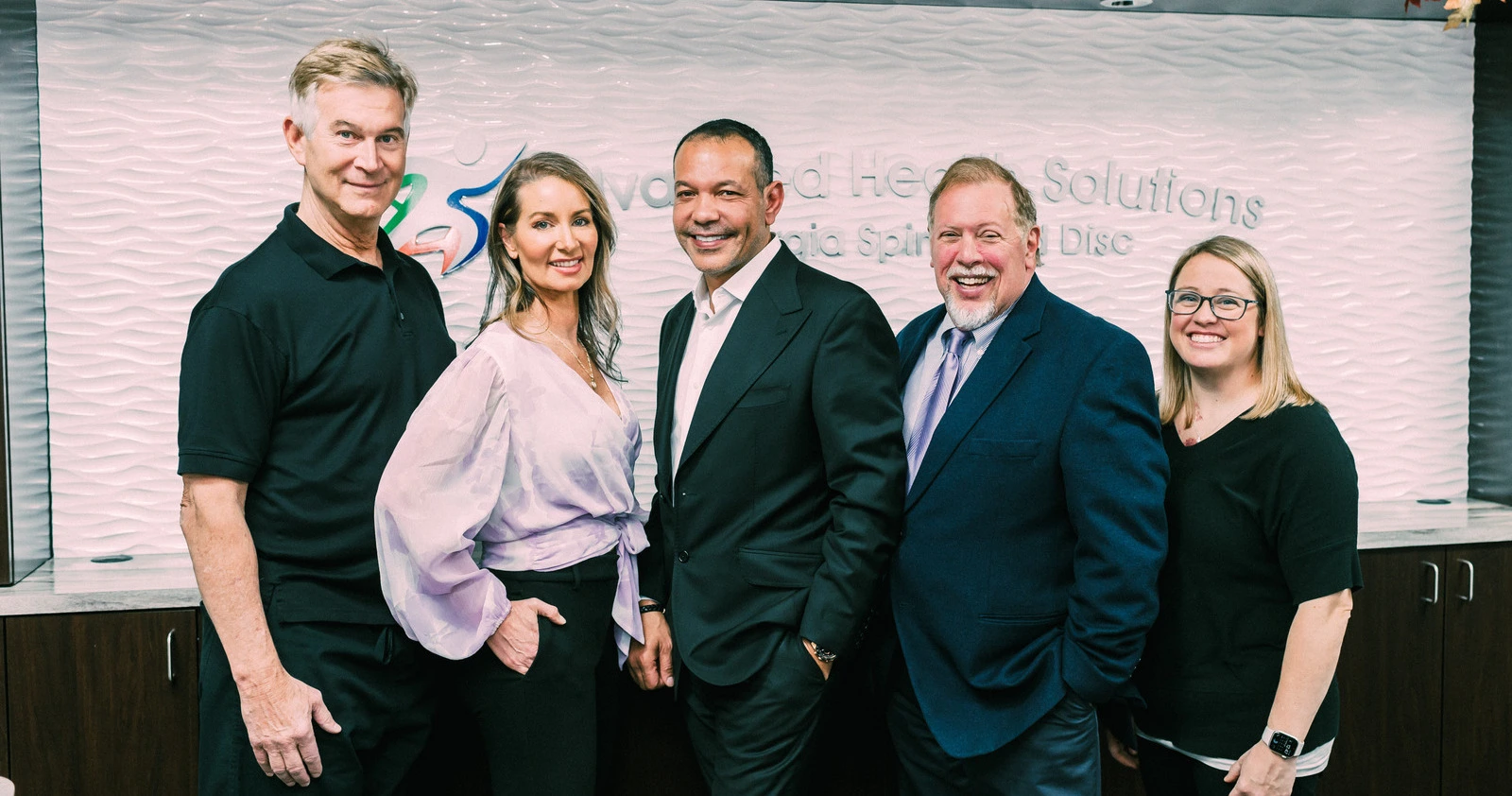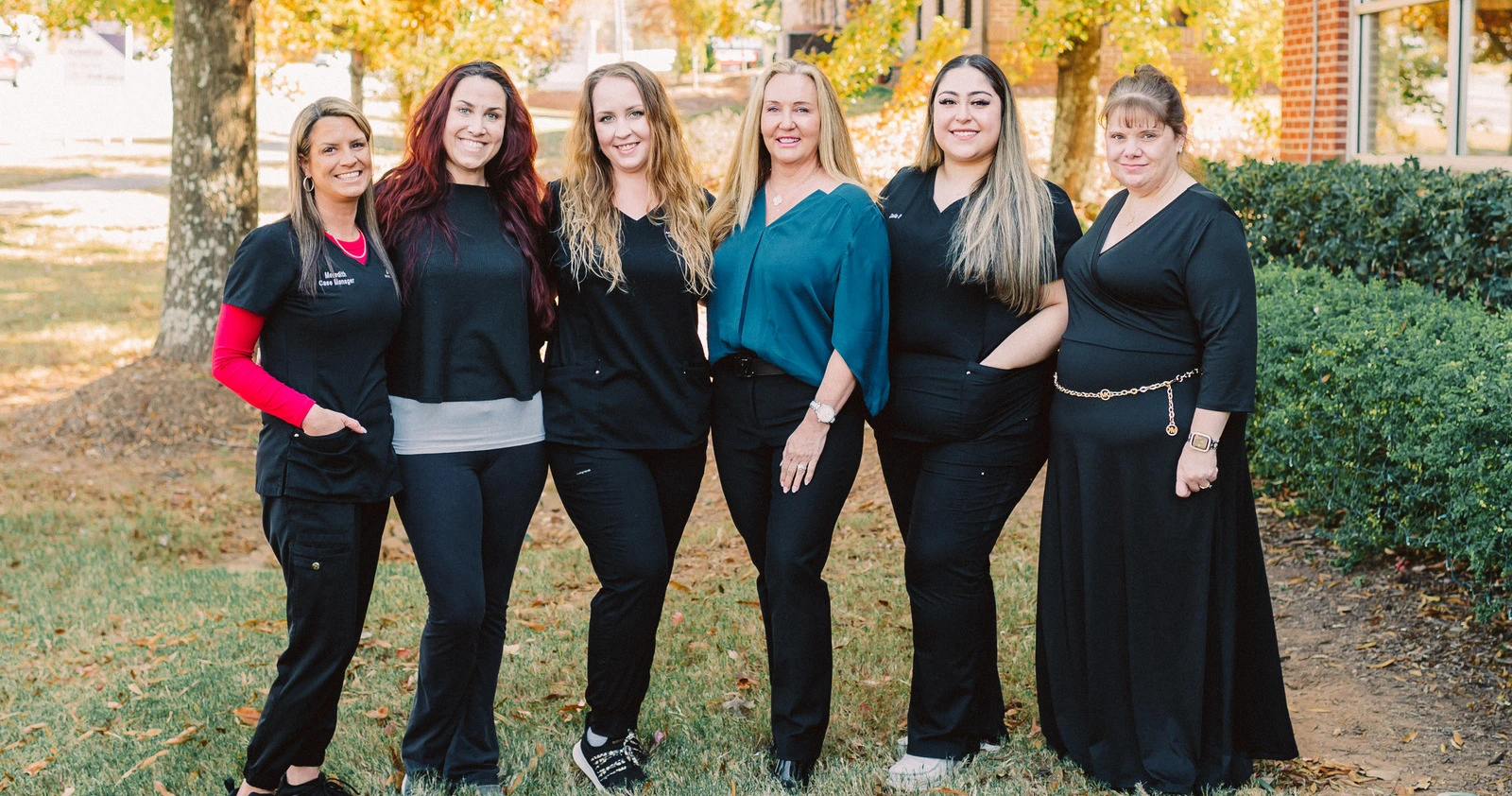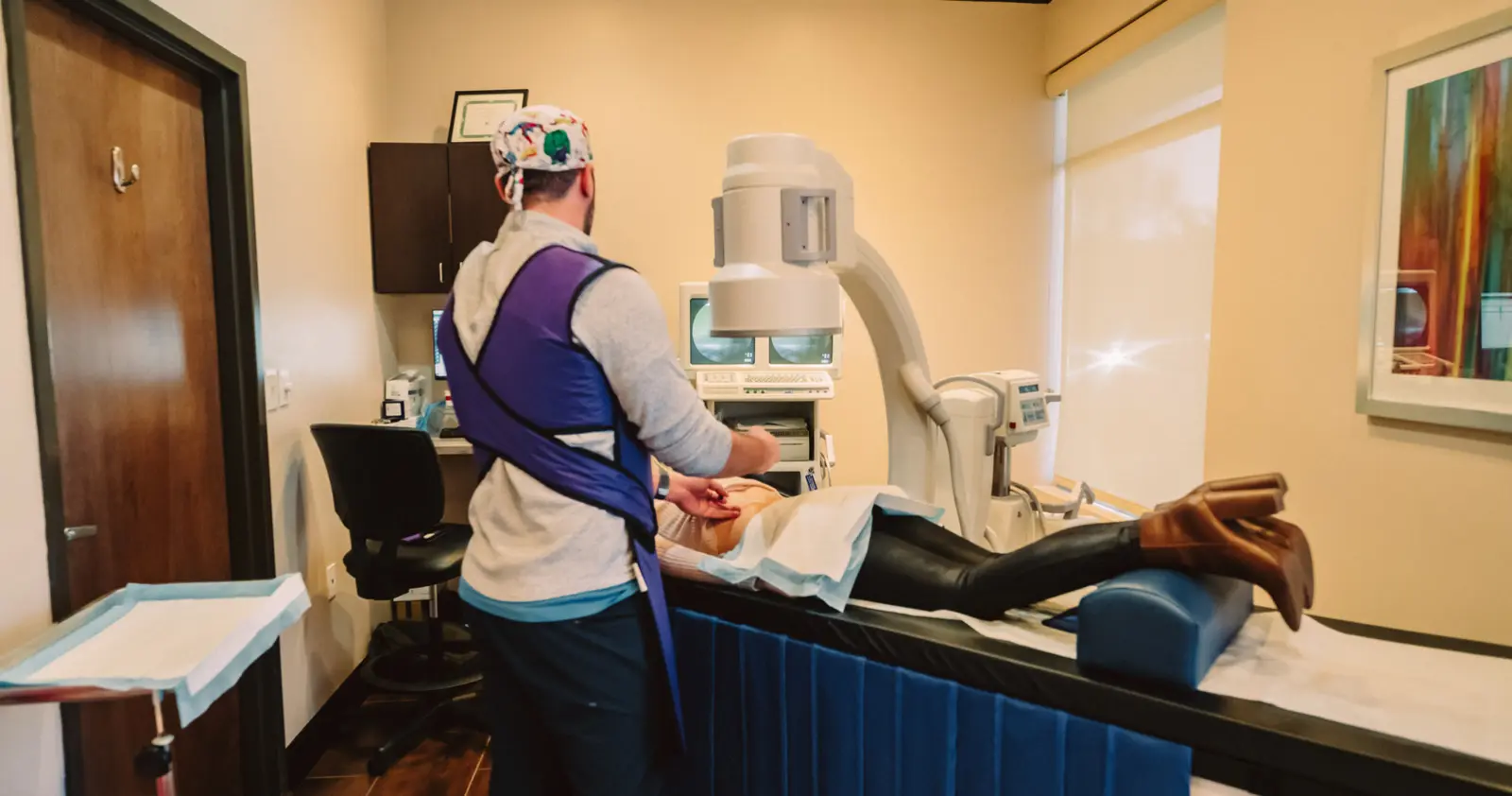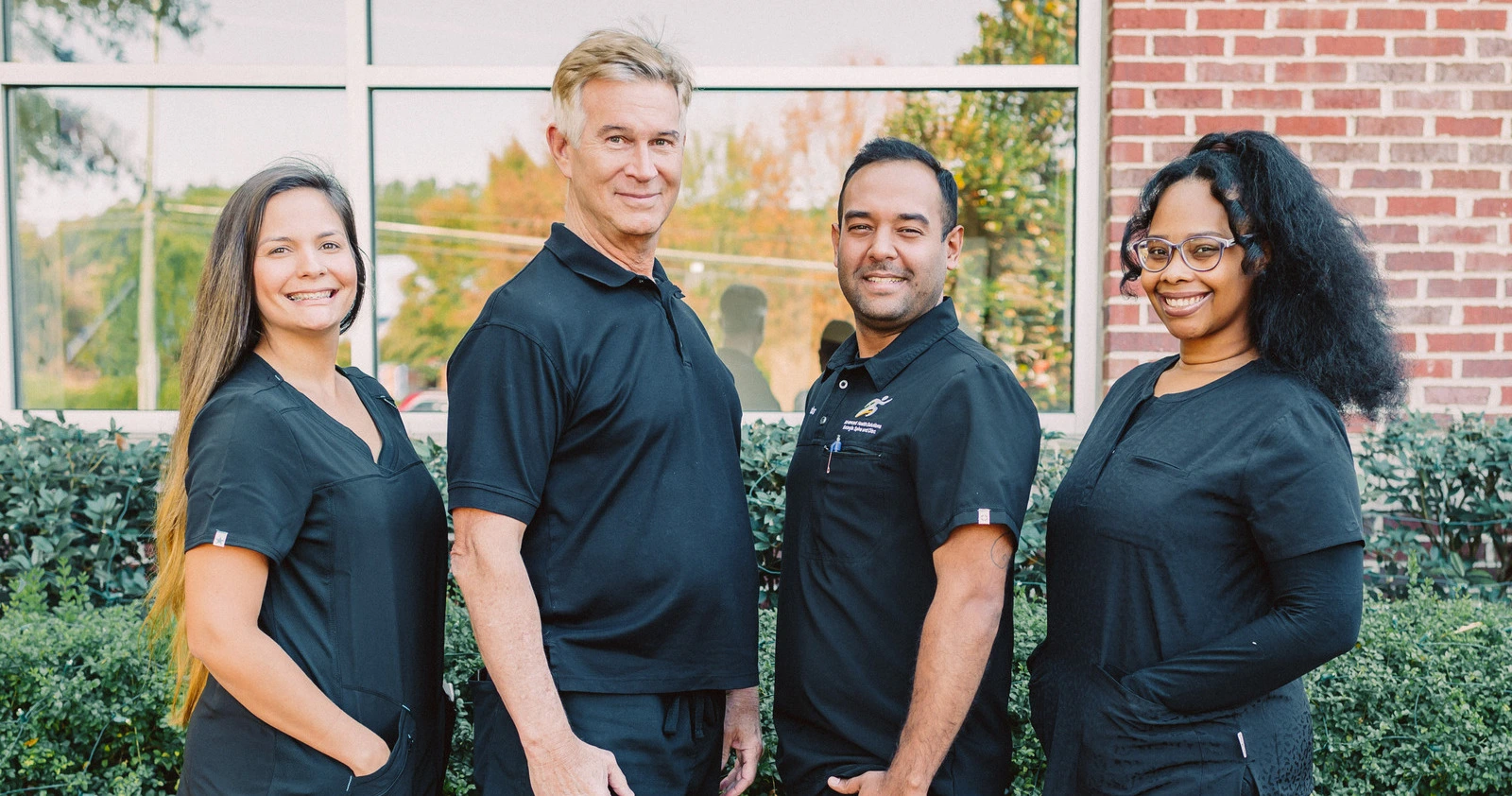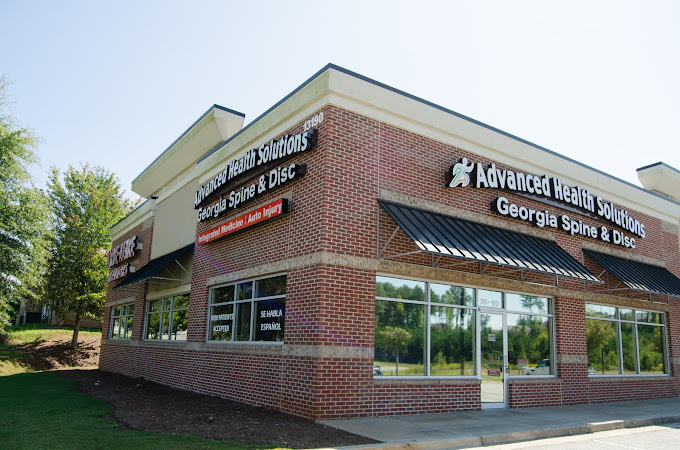
Car Accident Treatment Center
One of the most important steps you can take after being in a car accident is finding medical care at a car accident treatment center. Even if you feel no pain or injuries at the time, you may have head, soft tissue, or spinal injuries that require a thorough medical examination to detect.
Read on to find out 5 expert tips below on seeking care and treatment you need after a car accident.
-
Don’t Wait to Seek Medical Care
Failing to seek medical help after a car accident, or shrugging off “minor” symptoms like headaches, muscle aches or fatigue, can be dangerous to your health and well-being. Even if you feel no pain right after a collision, many car accident injuries — like concussions, whiplash, soft tissue injuries, and spinal injuries — may not display symptoms until several hours, days or even weeks after the accident.
Additionally, you may have internal bleeding, a herniated spinal disc, tissue and ligament damage, or fractures that can only be seen with an X-ray or CT scan. For your health, safety, and well-being, see a doctor immediately following a car accident or as soon as you experience pain or symptoms. Timely care and treatment can prevent long-term pain and injuries.
-
Don’t Choose Your Primary Care Physician (PCP)
Your PCP has been trained to treat internal health conditions. He or she is not equipped to identify and treat car accident injuries like concussions, whiplash, and soft tissue damage.
Find a specialist who will run the necessary tests and prescribe the appropriate treatments. And make detailed documentation about the severity of your injuries and long-term effects.
For example, doctors like the team of physiotherapists and chiropractors at Advanced Health Solutions – GA Spine & Disc are specially trained and qualified to determine how serious your injuries are and provide the best treatment options.
-
Look Up Online Reviews Before Making A Selection
Research doctors in your area before making your selection. Online reviews and patient testimonials can help you judge what kind of care and service you can expect to receive. Additionally, online research through a practice’s website will tell you what kinds of injuries they treat. This will help you find a qualified doctor who is best suited to meet your needs.
-
Be Honest with Your Doctor
During your first appointment, be completely upfront with your physician. Feel free to tell him or her:
- The circumstances surrounding your car accident and how it occurred
- The symptoms you are experiencing
- The severity of symptoms
- When symptoms began
- A full medical history, including pre-existing conditions, previous injuries, and if you are under any medications currently
Your doctor will need a full view of your medical history and current medical condition. To allow them to diagnose your injuries accurately and prescribe the appropriate treatments.
-
Don’t Be Afraid to Ask Questions
Don’t be afraid to ask your doctor questions. When your health and safety are on the line, you need to be your own biggest advocate.
An experienced and reputable doctor of a well-established and professional car accident treatment center will be able to prove the credentials and qualifications he or she has to treat your specific injuries. Ask your doctor to explain the detailed treatment plan he/she has created to treat your injuries as well as any long-term effects you may experience from your injuries.
Additionally, don’t be afraid to tell your doctor if you are considering filing a personal injury claim/lawsuit as the result of your car accident. Ask your doctor if they know how to properly document your injuries and treatment plan. You may need medical records for a lawsuit.
Be proactive in ensuring that you are receiving the best car accident care and treatment to aid your quick and full recovery.
Steps to Recovery After a Car Accident
There are no shortcuts in the healing process. After you have suffered an injury in a car crash, full recovery takes time and care. Some injuries take weeks or even months to heal completely, depending on the severity of the injury, pre-existing health conditions, and how compliant you are with treatment.
While we can’t give you definitive answers on how long your recovery process will be, we can give you definitive actions to take that will put you on the right track. Keep reading to learn more.
-
Seek Medical Care Immediately After A Car Accident
Not all car accident injuries are visible immediately. Pain and symptoms from concussions, whiplash, and spine damage may take hours, days, or even weeks to appear. The longer you wait to seek medical care, the higher risk you have of injuries worsening and requiring a more extensive recovery period.
Left untreated, car accident injuries like whiplash and herniated spinal discs may lead to chronic pain in the future. And untreated concussions or internal bleeding can be life-threatening or cause permanent brain damage.
Even if you aren’t in pain after a car accident, see a doctor for a checkup. He or she can run imaging tests to check for swelling, internal bleeding, fractures, and soft tissue damage.
-
Find the Right Car Accident Injury Doctor
Your primary care physician (PCP) is not the best doctor to see after a car accident. PCPs are trained to treat internal injuries — many of them do not have the necessary training and qualifications to identify, diagnose and treat common accident injuries like whiplash, concussions, soft tissue injuries, and fractures.
Instead, seek care from a specialist who has experience treating the types of injuries you may sustain. A well-established and reputable car accident treatment center has a team of board-certified doctors that specializes in providing orthopedic care and pain management services for a wide range of joint, bone, muscle, and spine conditions.
Our physicians are trained to identify, diagnose, treat and rehabilitate musculoskeletal problems and get you back on your feet as soon as possible after a car accident.
-
Follow Your Prescribed Treatment Plan
The treatment process may be long and slow. The most effective way you can ensure a complete recovery, in as short a period as possible, is to follow the prescribed treatment plan created by your doctor. This includes:
- Taking all medications as prescribed
- Taking time off work and limiting normal activities to allow your body time to heal
- Performing therapist-recommended exercises at home
- Participating in physical therapy
- Setting and attending follow-up appointments with your physician
If you feel like some parts of your treatment plan aren’t effective, don’t just stop following the plan. Instead, talk to your doctor. Together, you can discuss alternative treatment options that will be more effective for you.
-
Manage Your Pain
You may be in a lot of pain for several days, weeks, or even months after your accident. Pain can cause you to feel angry, hopeless, frustrated, and less motivated to participate in physical therapy and take other steps to help your recovery.
It is important that you find ways to manage your pain — suffering through it in silence will only hinder your progress.
Pain management might include resting frequently during the day, taking over-the-counter pain medications, and using hot or cold compresses. Massages may also help with sore muscles, tendons, and ligaments.
If you’re experiencing uncontrollable pain, pain that’s affecting your ability to function or pain that disrupts your sleep, then speak to your doctor. He or she may decide to prescribe stronger prescription painkillers or other pain treatment options at a car accident treatment center.
-
Get Adequate Rest
Sleep and rest are crucial components of the recovery process. When you sleep, your body increases blood flow to your muscles, and tissue and muscle repair and growth occur. Additionally, the levels of stress hormones in your body drop during sleep, which can help reduce internal inflammation.
After an accident that causes a major injury, it is important that you slow down and rest frequently so your body has time to heal. Good sleep will also positively impact your energy levels, alertness, and mood during the day.
Know your limits and don’t push yourself too hard or too soon. If you try to “power through” serious car accident injuries, you run the risk of injuring yourself further.
-
Eat A Healthy Diet and Stay Hydrated
Eating a nutritious diet can help keep your recovery on track. During the healing process, your body needs whole, fresh foods with plenty of vitamins and protein to help repair damage.
Try to eat regular, healthy meals, even on days when you are feeling a lot of pain or when you are frustrated by the recovery process. Your body needs good fuel to function properly, and you will feel stronger and more energetic when you eat well.
And don’t forget to hydrate. Your body needs adequate fluids to repair muscle and tissue damage inside the body.
-
Exercise and Stretch
It is important to exercise and stretch to regain full range of motion, flexibility, balance, and endurance. Regular movement will keep your muscles and joints from getting stiff and weak and it will also help reduce pain and inflammation from your injuries.
Follow your doctor’s recommendations for the amount and types of exercises it is safe for you to do. Even if you feel like you could do more, pushing yourself too hard before you are ready may worsen an injury and prolong your recovery.
One great way to incorporate movement into your day is to practice gentle stretching routines like yoga or tai chi.
Book Your appointment After A Car Accident
If you have been in a car accident and need medical evaluation and/or treatment for your injuries, contact or visit Advanced Health Solutions – GA Spine & Disc today. Our board-certified physicians have experience treating common car crash injuries like whiplash, concussions, soft tissue damage, and spine damage. Our car accident treatment center strives to provide honest, transparent, and quality care to all patients.
Car Accident Treatment Center
Call us today at (770) 212-3991 to schedule an appointment or fill out our online contact form and we will get back to you soonest.
